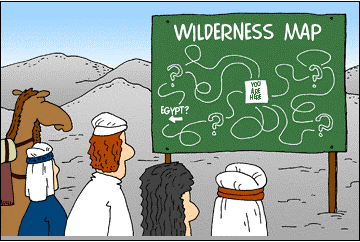 It is good to be back online after a few days away. Since my last blog entry on Wednesday, much has happened in the corporate life of God's people. After the reign of King Solomon, the kingdom was divided into two kingdoms: the Kingdom of Israel in the north and the Kingdom of Judah in the south. After the division of the kingdom, the northern kingdom (Israel) lasted about 200 years before it was overtaken by the Assyrian Empire in 722 BC. The southern kingdom of Judah lasted almost 350 years before it was ultimately taken captive by the Babylonians in 586 BC (see map of divided kingdom below).
It is good to be back online after a few days away. Since my last blog entry on Wednesday, much has happened in the corporate life of God's people. After the reign of King Solomon, the kingdom was divided into two kingdoms: the Kingdom of Israel in the north and the Kingdom of Judah in the south. After the division of the kingdom, the northern kingdom (Israel) lasted about 200 years before it was overtaken by the Assyrian Empire in 722 BC. The southern kingdom of Judah lasted almost 350 years before it was ultimately taken captive by the Babylonians in 586 BC (see map of divided kingdom below). ~
As the kingdoms of Israel and Judah declined, the various prophets of the Old Testament attempted to bring restoration to the covenant relationship between God and his people. The prophet Elijah was a significant prophetic voice during the time preceeding the Babylonian exile. However, the people of God repeatedly rejected the appeal of the prophets to repent and return to the Lord, which ultimately led to the destruction of the city of Jerusalem and the Temple of the Lord. The people were led away into captivity in the land of Babylon (see map of Babylonian Exile below). Second Kings, chapter 25 (yesterday's reading) describes the final years of the kingdom of Judah. The last King of Judah was Zedekiah, who was taken away into captivity by the Babylonians (Note: Here the terms Chaldeans and Babylonians are essentially interchangable).
~
Today's reading from the book of Ezra describes the rebuilding of the Temple in Jerusalem after the Israelites were allowed to return to their homeland (the captivity in Babylon lasted approximately 50 years). This return to Jerusalem was made possible by King Cyrus of Persia, who had recently conquered the Babylonian Empire. The Edic of Cyrus allowed the Israelites to return to their homeland in order to rebuild the city of Jerusalem and the Temple. The reconstruction of the Temple was a significant outward and visible sign of the reconstituted relationship between God and his people. However, the book of Ezra emphasizes the need not only for outward piety, but inward conversion. The covenant relationship between God and the Israelites would need to be reestablished on the foundation of faithfulness, both in worship and in keeping the law of God.






